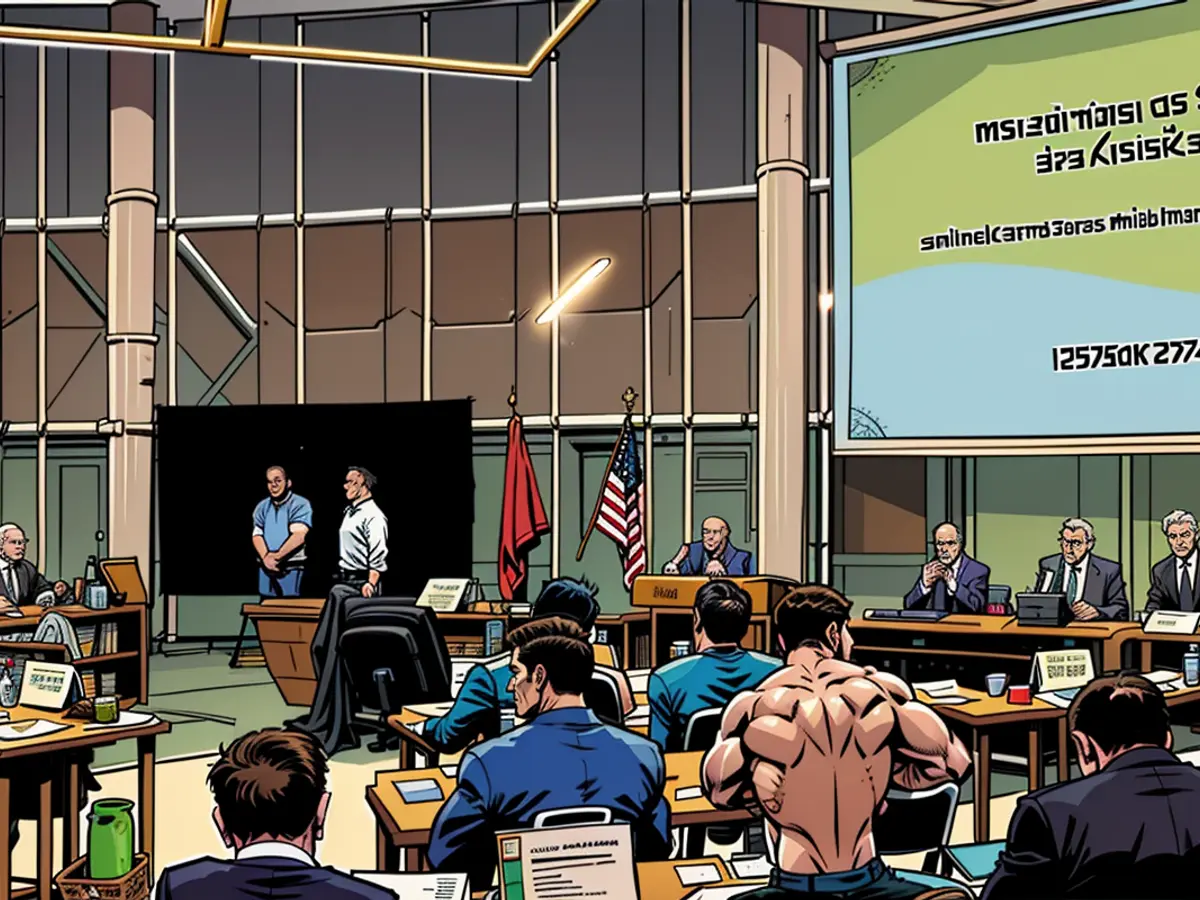Parties - The AfD and the firewall: no chairmanship in the stronghold
The AfD faction failed in its stronghold in Brandenburg in the election for the chair of the Kreistag in Spree-Neisse. The Kreistag in Forst (Lausitz) elected Torsten Schüler (FDP) from the Freie Bürger faction with 29 votes as chairman - he had previously also led the faction. The AfD politician Daniel Münschke, who is also a state representative, lost with 21 votes. However, he received more votes in terms of calculations than the votes of the AfD faction.
The AfD achieved the highest result of 38.2% in the Spree-Neisse communal election. This was the highest result in the 14 district councils and 4 city council meetings. The CDU came in at 20.1%, and the SPD at 13.0%. The AfD grew from 13 to 19 members in the district council. However, they do not have the majority of the 50 seats. At the constituent session, the "wall" of the others against the AfD was clearly evident. The Verfassungsschutz Brandenburg classifies the AfD state association as a suspected right-wing extremist case. In Südbrandenburg, the AfD is particularly strong.
New old district council chairman: "We'll make it work"
The new old district council chairman wants to find solutions together. The goal should be "that we argue together here, but then find compromises in consensus," said Schüler, who belongs to the Freie Bürger faction. "I think we'll make it work, we'll get there with common strength, with common power." In his short presentation, the doctor had previously advertised his experience as chairman of the district council before.
The AfD candidate for the chair, Daniel Münschke, had appealed to everyone to take responsibility. He compared the district to a ship on the high sea. "It's possible that we all row in different directions," said Münschke, who was previously the second deputy chairman in the district council. "But that's not the goal: we need to determine a course that brings us into a safe harbor." That requires experienced leadership.
Münschke also failed in the elections for the deputy chairs. Fred Kaiser from the CDU was the first deputy, Mario Müller from the SPD the second deputy. The AfD was disappointed. "Now it's the case that over 38% of the female and male voters in the Spree-Neisse district have prescribed a way," said Münschke. "They would naturally also like to see a representation in the district council chairman." He accused the other factions of "disregarding the voter will of these people" - even if that is democratically possible.
Landrat remains optimistic
Landrat Harald Altekruger expressed optimism. "Certainly, the AfD is the largest faction, but it is not written in stone that they must then also be the chairman," said the CDU politician to the German Press Agency. The previous chairman had shown that he had done his job well. He hopes that the district council, despite the new majority relations, will find good solutions. "I am already optimistic, as the first election results here today have gone, that it will function in the future."
On September 22, a new Landtag will be elected in Brandenburg. So far, the AfD is leading in the polls. They also won the European and communal elections, although these elections have nothing to do with the Landtag election. The beginning of the new Spree-Neiße district council shows that the AfD, despite new strength, cannot find a majority in crucial votes. However, they have the chairmanship of the committees for Economy, Transport and Construction, Agriculture and Environment, and Sorbian-Wendish Affairs.
- Despite failing to secure the chair in the Spree-Neisse Kreistag, the AfD still holds a strong position in South Brandenburg, serving as the largest faction in several district and city council meetings.
- The 'Firewall' against the AfD, as referred to by some politicians, was evident during the constituent session of the new district council, with the other parties combining forces to prevent an AfD majority.
- In the local elections, the AfD saw significant growth in Lusatia's Spree-Neisse region, increasing from 13 to 19 seats in the district council, making it the largest faction.
- The SPD and FDP, alongside the CDU, have played a crucial role in forming a 'wall' against the AfD's ambitions for key positions in the district council, such as the chairperson.
- During the campaign for the chair of the Kreistag in Spree-Neisse, the AfD's candidate, Daniel Münschke, emphasized the need for experienced leadership, comparing the district to a ship on the high sea.
- The new district council chairman, Torsten Schüler (FDP), has promised to work collaboratively with all parties, aiming for consensus and common strength to navigate through any challenges facing the municipalities and county council.
- In the upcoming Brandenburg Landtag elections on September 22, the AfD maintains a leading position in the polls, indicating that its presence and influence in the political landscape is not limited to the district level.








